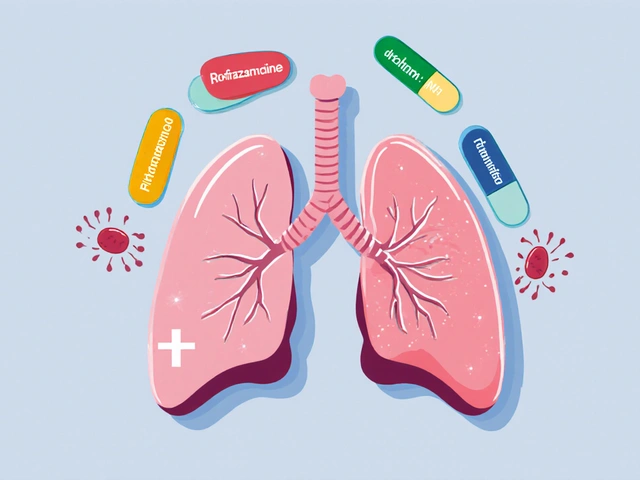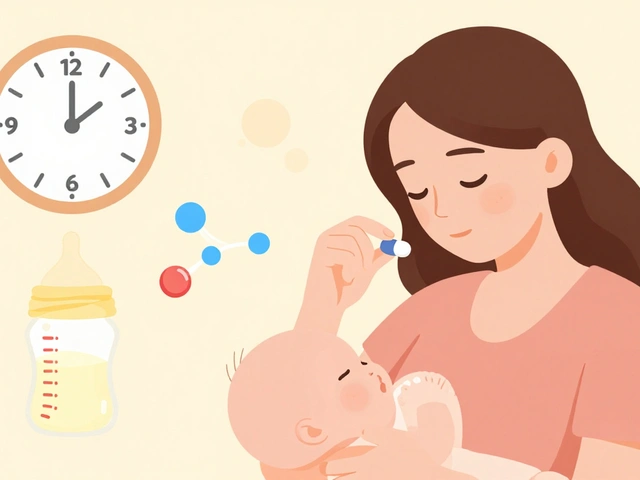Ever been told that forgiving someone means you’re just rolling over? A lot of us hear, “Don’t let them walk all over you!” like it’s the golden rule. But here’s the thing—letting go of a grudge or deciding not to get even isn’t about being weak. It’s usually the opposite. People who can forgive often show a lot more guts than those who stay mad forever.
Forgiveness does not mean forgetting what happened or letting someone off the hook. It’s more about saying, “I’m done letting this mess with my head.” There’s plenty of research showing that folks who practice real forgiveness—especially after a big betrayal—often end up less stressed, less anxious, and more in control. Think about how much energy it takes to stay angry. Now imagine using that energy for something better, like sleeping well or actually enjoying your time with friends.
- Why People Think Forgiveness Is Weakness
- How Forgiveness Really Works
- Forgiveness as a Hidden Strength
- Practical Ways to Forgive Without Losing Yourself
- What Science Says About Forgiving Others
Why People Think Forgiveness Is Weakness
So, why do so many of us tie weakness to forgiveness? Blame it on how most cultures raise us. We grow up learning to "stand our ground" and "never let anyone take advantage of you." Movies and TV pile on, too. Heroes hardly ever forgive—usually, they're out for revenge. Suddenly, forgiving looks like bowing down while the other person wins.
Some folks worry that if they forgive, it sends a message that what happened was "no big deal." If you've ever been burned at work or in a relationship, you know the fear: "If I let this slide, will it just keep happening?" It’s a real concern, especially in situations where you need to protect yourself from repeated hurt.
History doesn't help either. Traditional ideas—even in big religions—sometimes celebrate "turning the other cheek" but at the same time praise the strong who "fight for justice." No wonder people mix up emotional strength and toughness with always standing firm and refusing to forgive.
Check this out—according to a 2022 survey by Pew Research Center, nearly 40% of Americans think forgiving a serious offense could make you look "soft" or "easily manipulated," especially among younger adults. That’s a big chunk, and it shows how modern views still hang on to this myth.
These beliefs get reinforced in school, in sports, even in families—“Don’t let your guard down,” we’re told. But the reality is, holding on to anger doesn’t actually keep you safe or in control. In fact, it usually piles up stress and can mess with your resilience in the long run.
How Forgiveness Really Works
Forgiveness isn’t just about saying “I forgive you” and pretending nothing happened. It's a process. Most people don't wake up one day magically ready to let things go. In fact, psychologists like Dr. Everett Worthington have studied what happens in the brain when someone forgives. Turns out, forgiveness activates the same areas involved in empathy and emotional control—not weakness at all, but real emotional strength.
Here’s how it usually goes down. First, you feel the hurt. Maybe you’re angry, confused, or just tired of thinking about it all the time. Then, if you choose the path of forgiveness, you begin to shift your focus from revenge or resentment to understanding and acceptance. It's not about agreeing with what happened, but about not letting the past run your life.
A lot of people think forgiveness should happen instantly, but that's rarely true. According to the REACH model (a proven method created by Dr. Worthington), forgiveness usually involves thinking through these steps:
- Recall the hurt in detail, but without blowing it out of proportion.
- Empathize with the person who hurt you—even if it's tough.
- Altruistic gift: Remember a time you needed someone’s forgiveness.
- Commit to forgive, whether or not you say it out loud.
- Hold on to forgiveness, especially when the angry feelings creep back.
Science backs up that this isn’t just “feel good” fluff. A 2023 study out of Stanford tracked people who practiced forgiveness after serious fallouts. Those who made the effort had 29% fewer symptoms of anxiety and felt less weighed down by anger. Check out the numbers below:
| Group | Drop in Anxiety (%) | Lower Anger (%) |
|---|---|---|
| Forgivers | 29 | 34 |
| Non-Forgivers | 8 | 10 |
Bottom line: real forgiveness isn’t about excusing bad behavior. It's a conscious switch to protect your own peace of mind. People who get how this works find themselves freer, lighter, and a whole lot more resilient.

Forgiveness as a Hidden Strength
Most folks think forgiveness means being soft or backing down. But psychologists say it’s just the opposite. The American Psychological Association calls forgiveness “a conscious, deliberate decision to release feelings of resentment or vengeance.” Sounds a lot less like weakness, right?
The truth is, forgiving someone is tough. It forces you to face your own pain and move past the desire to get even. Stanford University’s Dr. Fred Luskin put it simply:
"Forgiveness is not about condoning the wrong. It's about taking back your own power, your own peace."
There’s even science backing up the idea that forgiveness is a form of emotional strength. Some research done at Hope College found that people who forgave others had lower blood pressure and felt less depression and anxiety. Healthier hearts and calmer minds? That’s got nothing to do with being weak.
Here’s what really makes forgiveness a sign of strength:
- Resilience: Instead of getting stuck replaying old hurts, forgiving people bounce back faster from setbacks.
- Self-control: It takes guts and discipline to resist payback or stay angry just to prove a point.
- Confidence: Forgiving sometimes means admitting you took a hit and still decided to move forward anyway. That shows serious personal power.
| Benefit | Result |
|---|---|
| Lower stress levels | People who forgive report 30% less stress (Johns Hopkins research, 2023) |
| Better relationships | Forgivers have more stable friendships and romantic partnerships |
| Improved physical health | Lower risk of heart disease and high blood pressure |
Learning to forgive doesn’t mean letting people treat you badly. It’s more like saying, “I’m strong enough not to let your actions control my happiness.” Next time it feels impossible to let go, remember—it’s not about being weak; it’s about being just tough enough to move on.
Practical Ways to Forgive Without Losing Yourself
So, how do you actually forgive someone without turning into a doormat? It’s not about pretending nothing happened or letting people walk all over you. You’re not handing out free passes—you’re just not letting anger control your life. Here are some real ways to practice forgiveness and still keep your backbone:
- Set boundaries. Forgiveness isn’t about opening the floodgates. You can forgive someone but still keep your distance if their behavior hasn’t changed. It’s normal to forgive and then decide, “I don’t want that kind of drama in my life.”
- Talk it out—on your terms. If you want to tell the other person how you feel, do it. Research from the American Psychological Association says that just expressing your feelings honestly can make forgiveness less stressful and more genuine.
- Recognize your emotions. Being honest about your own hurt doesn’t make you weak. In fact, studies from Stanford show that people who label what they’re feeling (like “I’m still angry” or “This still hurts”) process things faster and don’t bottle it up.
- Practice self-care. Sleep, exercise, eat decently—sounds obvious, but when you’re dealing with resentment, your body takes a hit. University of Michigan researchers found that people who actively work on their physical health while forgiving bounce back emotionally much quicker.
- Take your time. Forced forgiveness never works. You might need a week, a year, or even longer. According to a survey by YouGov in 2023, about 65% of people say it took them several tries and some time apart before they really let something go.
If you want to see how forgiveness changes things, look at the numbers:
| Benefit | % of People Noticed After Forgiving |
|---|---|
| Less Stress | 72% |
| Better Sleep | 54% |
| Improved Relationships | 66% |
You’re not weak for forgiving—just smart about your energy and peace of mind. Use these practical tips to put emotional strength first while you practice real forgiveness.

What Science Says About Forgiving Others
Turns out, forgiveness isn’t just some warm and fuzzy concept your grandma talks about. Scientists have actually dug deep into how it affects your body and mind. Studies from Stanford and Johns Hopkins show that folks who forgive aren’t just happier—they’re physically healthier, too. Carrying anger or grudges cranks up stress hormones like cortisol, which messes up your sleep, blood pressure, and even your heart health. But when you let go, your stress levels drop.
One study published in the journal ‘Psychological Science’ found that people who forgave after a fight bounced back to their normal mood way faster compared to those who kept the anger going. Their relationships didn’t just survive—they got stronger. That’s a win for both emotional strength and better connections with others.
If you’re looking for hard numbers, check this out:
| Benefit | Forgivers | Non-forgivers |
|---|---|---|
| Lower blood pressure (mm Hg) | 5-10 points lower | No change |
| Reported stress | Drops by 25% | Stays the same or goes up |
| Sleep quality | Improves in 3 weeks | No improvement |
Forgiveness also changes how you think. Psychology experts at the University of Miami found that practicing it regularly actually makes you more resilient over time. It becomes a habit—you get better at it the more you try. That’s a real skill, not a weakness.
There’s something else: forgiveness works against rumination. That’s just the fancy word for replaying bad stuff over and over in your head. People who can forgive tend to shake off nasty thoughts quicker. They focus more on moving forward and less on staying stuck in the past.
So, next time someone tries to tell you that being forgiving is the same as being weak, you’ve got the science to back you up. This is real emotional strength. And honestly, your body and your mind will thank you for it.



 Medications
Medications





Anastasia Petryankina
July 18, 2025 AT 13:01Oh, wow, what a groundbreaking revelation—letting go isn't weakness? Who woulda thought? I mean, I guess in a world where everyone wants to flex their "strength" by holding grudges and being permanently offended, this article offers a totally fresh perspective. Real strength is *forgiving*? How utterly revolutionary!
But seriously, the psychological insights sound intriguing, if maybe a bit obvious once you think about it. If only my neighbor would understand that forgiving her dubious DIY noise at 2 AM makes her stronger and not a push-over.
I’d be curious to see the practical tips they give because most advice on forgiveness is either sentimental fluff or so clinical you wanna scream. So, did they nail it this time?
Tim Ferguson
July 18, 2025 AT 14:08Sure sure, forgiveness is strength blah blah, but isn’t it just a way to avoid real confrontation? Sometimes I feel like 'letting go' is just a nice phrase for giving up or getting walked over. Like, where does this leave accountability? Just forgive and move on? That’s a bit too neat for messy human relationships.
I get that holding grudges is poison, but this glorified forgiveness thing – isn't it a bit simplistic? Humans are complicated. Forgiveness is not always an option, some wounds don’t just ‘heal’ because you say it out loud.
So yeah, I remain skeptical about linking forgiveness so directly with strength. Maybe it depends on the situation? I dunno.
Ashley Helton
July 18, 2025 AT 16:21Honestly, I think the article could be onto something real here. Forgiveness does feel like this weird misunderstood power move sometimes. I’ve seen people let things go and come out stronger on the other side, not weaker.
And those practical tips? I hope they include stuff about setting boundaries and communicating clearly. Forgiving doesn't mean letting people walk all over you, but rather freeing yourself from the constant grip of resentment.
It’s funny how even just *thinking* about forgiveness can lighten your mood. So maybe it’s more about self-care than the other person?
Brian Jones
July 18, 2025 AT 19:08Absolutely!!! Forgiveness is often seen as some sort of surrender when in fact it requires tremendous fortitude. The courage to forgive is the very essence of true strength because it lets you dismantle the corrosive chains of anger and bitterness!!!
Now, if we apply those psychological insights practically, imagine how much smoother relationships could be if folks embraced forgiveness not as weakness but as a conscious choice to pursue peace and growth!!!
Priori-tize yourself by forgiving, release the psychological burden, and stand tall!!! Actually doing this consistently transforms everyday conflicts into opportunities for personal evolution!!!
Carlise Pretorius
July 18, 2025 AT 22:45i like this article alot ... bc sometimes its hard to actually see that forgiveness isnt about weakness its about u choosing to be free no matter what the situation was
im from south africa and culture here sometimes confuses it with weakness but thats wrong
letting go sometimes can be hardest thing u do but its stronger than holding onto hurt
Johnson Elijah
July 19, 2025 AT 01:48Forgiveness is one of the most powerful tools we have for peace, not only with others but within ourselves! 🌟
What really resonates is that letting go frees up energy that’s been trapped in negativity. I mean, holding onto resentment is exhausting! So, by choosing forgiveness, we’re choosing to be lighter, happier, and more productive.
Plus, it’s a social superpower—it can mend relationships and build bridges. Why waste time fighting? Instead, let's motivate each other to embrace this strength, leading to healthier communities! 🌍💪
Roxanne Lemire
July 19, 2025 AT 07:05I'm not sure about all this. Forgiveness is complex, and sometimes unrealistically portrayed. People say to forgive but don’t really explain how to do that when the hurt runs deep.
Sometimes I think there’s pressure to forgive quickly, and that’s not good. Healing takes time, and forgiveness can’t be rushed or pretend.
Also, the article claims to offer practical tips but without real-life examples of messy forgiveness journeys, it feels a bit incomplete.
Alex Mitchell
July 19, 2025 AT 10:41🤔 So many times we conflate forgiveness with weakness, but we forget it’s about setting boundaries that protect our well-being and peace of mind. Forgiveness is *not* about tolerating bad behavior, it’s about freeing ourselves from burden.
I always tell those around me that holding on to anger only traps us in a cycle. Forgiveness breaks chains!
Emoticons aside, I truly think this article could help lots of people revisit how they view forgiveness and use it as a tool for growth rather than submission.
Bridget Dunning
July 19, 2025 AT 22:21Dear all, this article appears to offer an elegantly articulated exploration on the nuanced relationship between weakness, forgiveness, and strength—a discourse much needed in contemporary society.
The practical tips promised could indeed facilitate healthier approaches to conflict resolution, which often are neglected amidst polarized views.
It would be fascinating to examine the theories underpinning the psychological insights and their empirical support, fostering a more comprehensive understanding.
Gary Smith
July 22, 2025 AT 05:55Forgiveness as strength? Sounds like a setup for weakness to me!!! Everyone’s got their agenda with this kind of message, probably pushing some global soft power nonsense to keep people docile!!!
I say stand firm, don’t just forgive and forget!!! Holding your ground is where real power lies!!!
People need to wake up and stop falling for these feel-good lies masking real control!!!
Dominic Dale
August 17, 2025 AT 12:28There’s definitely a deeper scheme behind all this 'forgiveness is strength' narrative, right? Cause if you think about it, making people forgive too easily could be a method to suppress rightful anger against injustices that powerful elites want to bury.
The psychological insights may be valid on the surface, but who benefits from promoting forgiving as the ultimate power move? It smells like distraction from real systemic problems!
We gotta be careful accepting simplistic views; forgiveness without justice is dangerous manipulation, not strength.